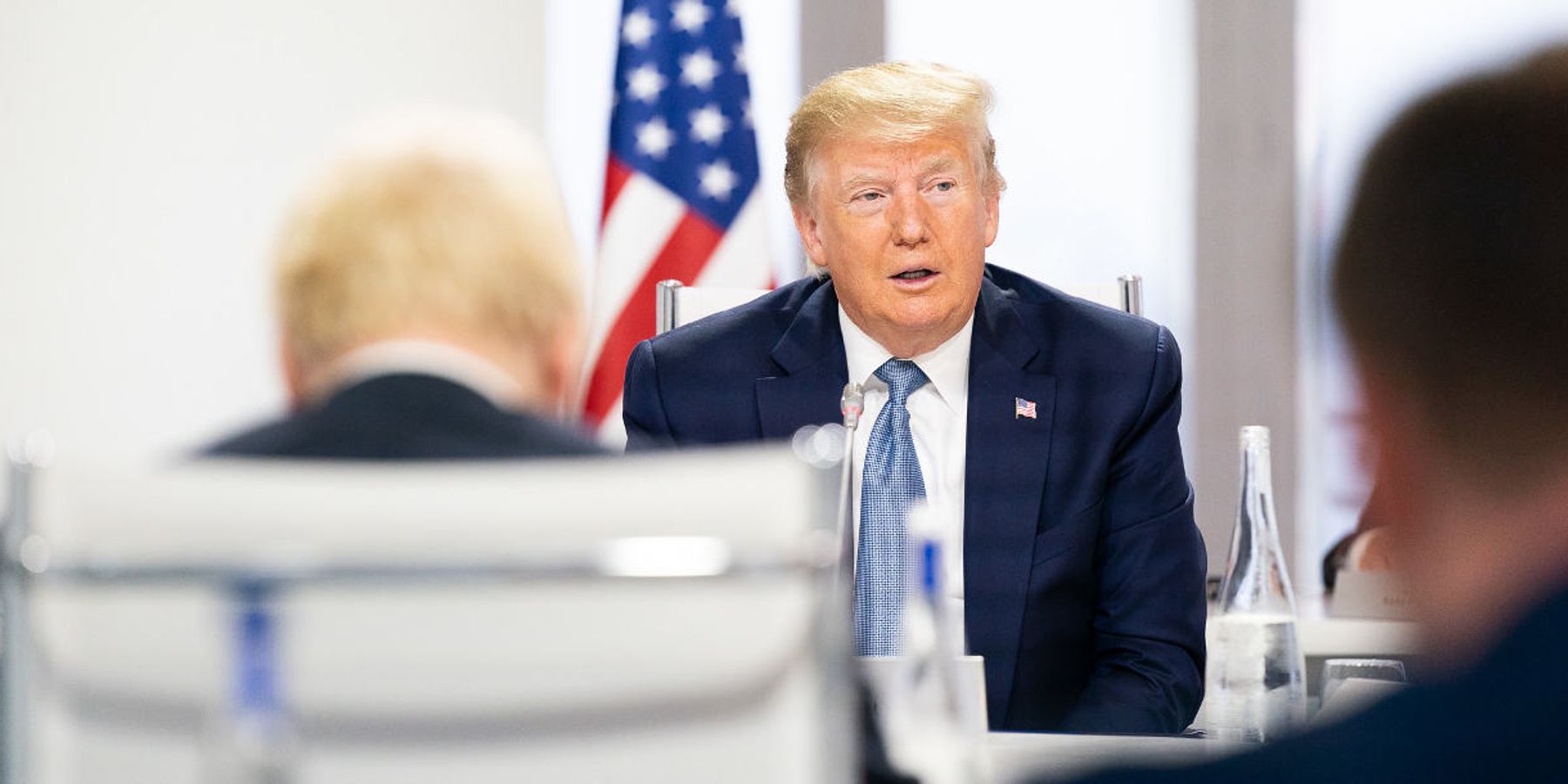
Peter Dykstra: Nobody does it better
President Trump adds the environment to the long list of things he's really good at. But his loopy environmental opinions have a long history.
According to Donald Trump, Donald Trump is the least racist person anywhere. He has the best words. Nobody loves the Bible more. He was always the best athlete. There's nobody bigger or better at the military – and remember, he had to overcome those bone spurs to achieve that.
There's no one who respects women more, or is better to disabled people. He has an excellent brain and terrific hands (the better to grab things with).
Need a second opinion? His personal physician assured us that he's the healthiest president we've ever been fortunate enough to have. And his erudite son, Eric, tweeted that "he has more energy than any human being," and that "95 percent of Americans" agree with his dad's politics.
So it should come as no surprise that, according to Donald Trump, Donald Trump knows "more about the environment than most people."
He said this by way of explaining why he blew off the climate change meeting of the G-7 economic summit last week, lobbing a my-dog-ate-my-homework excuse that was quickly contradicted by the facts.
It all came at the end of a week where Trump lobbed a couple of hallucinatory grenades into green circles. He reportedly floated the idea of purchasing Greenland from Denmark. The mega-island's commercial potential is growing as the global warming hoax melts away its ice cover. Greenland, and Denmark, were not amused. (My personal theory: The president is thinking in a golf/imperialism motif — today Greenland, tomorrow Tee Land, Fairway Land, and Sandtrap Land.)
According to unnamed White House sources, Trump also spitballed the idea of disrupting Atlantic hurricanes by detonating nuclear warhead inside them. This is the type of idea that hasn't been raised since the most dangerously zealous of the Cold Warriors died off.
These ideas came as the Administration unveiled its plan to cut the regulation of methane, a potent greenhouse gas. (This despite many large oil and gas companies calling for a tightening of such regulations.)
Let's not forget, months ago Trump opined that last year's Northern California wildfires could have been prevented by "raking" the forest floor. That's how the Finnish president told him it's done over there. When questioned about this, His Excellency Sauli Niinistö politely said his nation's lush forests are not normally raked.
To be sure, Trump may have the goofiest environmental notions, but he didn't invent them. Join me for a quick trip down Faulty Memory Lane to meet some of Trump's inspirational ancestors:
- As Governor of Maine in 2011, Paul LePage dismissed concerns about the risks from endocrine disrupting chemicals by explaining, "The worst case is that some women may have little beards."
- J.R. Spradley, a U.S. delegate to a 1990 climate change delegation, tried to assuage the concerns of his Bangladeshi colleagues concerned that its nation would be underwater (quoted in the Washington Post, 12/30/1990): "This is not a disaster, it is merely a change. The area won't have disappeared, it will just be underwater. Where you now have cows, you'll have fish."
- Brazil's Trump-ish new President, Jair Bolsonaro, rejected an offer of aid from France to help fight this year's catastrophic wildfires by saying France couldn't even stop Notre Dame Cathedral from burning.
- Talkshow blowhard Rush Limbaugh has been a prolific source of off-the-wall declarations, but his 2010 conspiratorial rant that the Deepwater Horizon oil spill was staged by headline-seeking environmentalists is a keeper.
- A decade after the Oklahoma City bombing and more than a decade before a spate of mass shootings by far right loners, the FBI settled on its Number One domestic terrorism threat: Radical environmental and animal rights activists. To be sure, groups like the Earth Liberation Front have claimed responsibility for large-scale arson and property destruction, but they've been dormant for years.
- Patrick Moore, an early leader of Greenpeace who turned to become an apologist for chemical, nuclear, fossil fuel and timber interests in the 1980's, famously described an old growth clearcut as a "temporary meadow."
So, say what you will about President Trump, but when he praises "beautiful, clean coal," just think about those who inspired him in Making America Groan Again.













